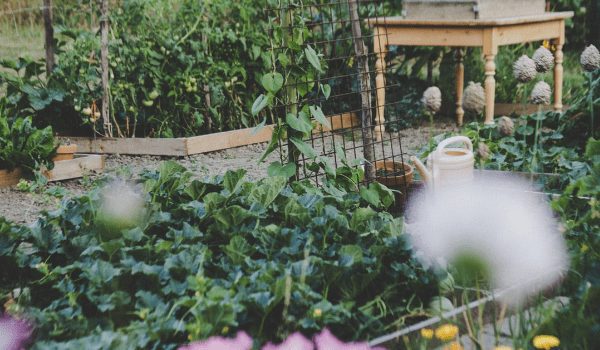There’s nothing better for you than delicious fresh vegetables straight from the ground. And the easiest way to get those veggies is with a vegetable garden all your own. Gardening can also be a beneficial activity for your mind and body. Beginners can learn more about gardening tips, tricks, and benefits below.
The Benefits
Gardening might be an activity you associate with your nature-loving aunt or grandma but it is a great activity for people of all ages. Not only does it have a number of mental health benefits, but it also boosts vitamin D exposure and helps boost the immune system.
Outdoor activities are also good for treating anxiety, depression, and other mental health problems. It also is a great tool for teaching kids how to respect the earth, enjoy the outdoors, and eat their vegetables. Almost 53% of people say that gardening has made them feel more productive.
Now that you know the benefits of gardening, let’s take a look at some of the best tips and tricks to make your garden thrive.
Finding the Perfect Spot
If you’re looking for the perfect spot for your garden, you’ll want to keep a few tips in mind.
- Keep sun, water, and soil in mind as healthy plants need all three
- Keep it where you can see it so you’ll spend your time there
- Make sure there’s plenty of sun
- Choose a spot near water or a water source
- Choose containers if you don’t have much room
- Pick the proper plants for your area
When you’re beginning your garden, keep an eye out for certain not-so-fun weeds and plants like crabgrass, ground ivy, and other pesky weeds and steer clear as they can be a real menace for vegetable gardens. You may also want to check for patches of nightshade, foxglove, poison ivy, and other poisonous plants. Nightshade and foxglove are extremely toxic to humans and poison ivy can cause extreme allergic reactions like rashes and swelling.
Plant What You’ll Eat
When it comes down to planting, keep your plants in neat rows with plenty of room between them so you can walk through it easily. When it comes to deciding what to plant, choose what you’re going to eat. Many gardeners start with tomatoes, peppers, and squash. However, you can grow whatever you eat.
For instance, if you eat a lot of Mexican food, you could grow tomatillos, a fruit that dates back to at least 800 BC. You could grow cabbage or potatoes if you eat a lot of those. Herbs and spices are also easy to grow. If you grow food you don’t eat, you’ll be wasting a lot of food.
Pests and Problems
The natural enemies of the garden are animals, bugs, and disease. If you have a lot of wildlife around, you can use fencing to keep them out. It will need to be high enough to keep out deer and go underground to stop rabbits and moles from digging their way in.
Some insects can be dealt with by hand, by simply picking off caterpillars and other large insects. However, you can tackle larger infestations with soap sprays or insecticides if you’re having really bad problems.
Finally, diseases can be a huge problem for gardens as well. Fungal diseases can be the hardest to deal with. You can keep your plants safe by watering in the mornings, keeping dead leaves away from stalks. Pull any infected plants as quickly as you can and do not add them to compost. This could spread the disease to other plants.
Gardening is a great way to get outside, eat healthier, and feel better. Whether you’re starting your first garden or working on your newest garden, these tips, tricks, and benefits can help you make the most of it.






